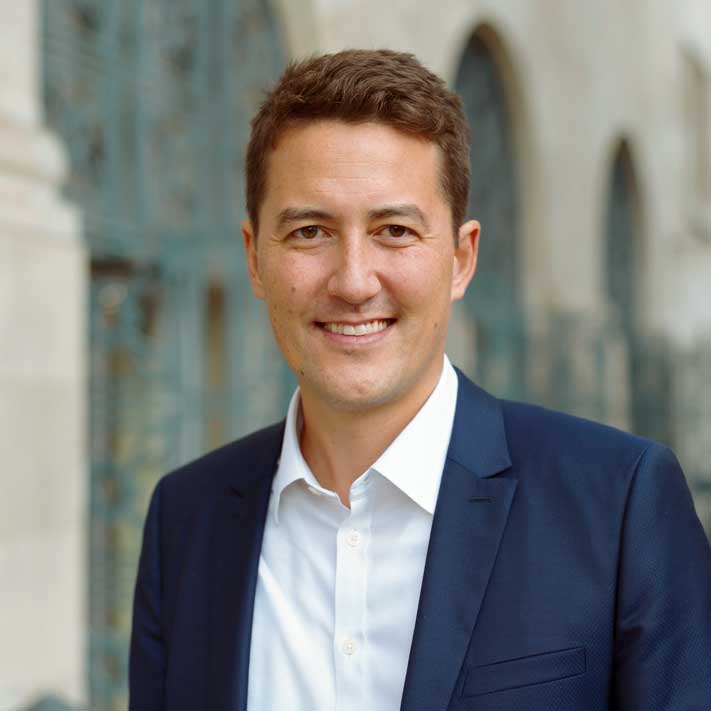The political economy of culture and conflict
Video
Insight
How governments distort news coverage
There is a thin line between news bias, fake news, and propaganda. Just look at the current debate about manipulation of the media in the U.S. While mass media is believed to play a powerful role in democracies, the ability of the media to perform its prescribed role as the “watchdog” has been questioned.
David Yanagizawa-Drott provides new insights to this problem by addressing the question about government distortion and news coverage bias in several research projects. Two of them focus on government distortion in the U.S. using data from the cold war. A third project aims at understanding the mechanisms of propaganda, providing evidence from the Rwandan genocide.
Read our full Insight on Fake news and propaganda by Maura Wyler, Head of Communication.
How governments distort news coverage
There is a thin line between news bias, fake news, and propaganda. Just look at the current debate about manipulation of the media in the U.S. While mass media is believed to play a powerful role in democracies, the ability of the media to perform its prescribed role as the “watchdog” has been questioned.
David Yanagizawa-Drott provides new insights to this problem by addressing the question about government distortion and news coverage bias in several research projects. Two of them focus on government distortion in the U.S. using data from the cold war. A third project aims at understanding the mechanisms of propaganda, providing evidence from the Rwandan genocide.

Intro
The political economy of culture and conflict
Highlighting the Rwandan genocide and the role of propaganda, David Yanagizawa-Drott asked in his inaugural lecture: «If media induce violence, can media induce peace?» A further snippet of evidence from his research was about gender norms in the context of labour markets. Yanagizawa-Drott showed the audience how peer values could be influenced to the benefit of all.
In 2016 David Yanagizawa-Drott was appointed Professor of Development and Emerging Markets at the University of Zurich, affiliated at the UBS Center. His work is centered around economic development and political economy, with current focus on culture, conflict and globalization. Professor Yanagizawa- Drott’s inaugural lecture covered the latest evidence on topics such as social norms in job markets and the shaping of labourforce.
His inaugural lecture took place at the Kunsthalle Zurich and was open to the public.
More information about 100ways - read
The political economy of culture and conflict
Highlighting the Rwandan genocide and the role of propaganda, David Yanagizawa-Drott asked in his inaugural lecture: «If media induce violence, can media induce peace?» A further snippet of evidence from his research was about gender norms in the context of labour markets. Yanagizawa-Drott showed the audience how peer values could be influenced to the benefit of all.

Speakers
David Yanagizawa-Drott received his PhD from IIES at Stockholm University in 2010. At that point, he was hired as Assistant Professor at John F. Kennedy School of Government, Harvard University. He was then promoted to Associate Professor in 2014. In 2016, he was hired as a full professor at University of Zürich. His research has shown that propaganda can cause violent conflict, studying the impact of hate media during the Rwanda Genocide. David has also examined the role of political protests in shaping policy outcomes and elections, establishing evidence that they can be highly effective in moving public opinion. In developing countries, a lot of his work focuses on the how to improve health outcomes and economic outcomes for poor households. In this line of work, for example, David implemented a randomized field experiment that showed that a simple Community Health Worker intervention in Uganda, based on a social entrepreneurship model, reduced child mortality by more than twenty percent. David is a member of several research networks, such as Poverty Action Lab (J-PAL), The Bureau for Research and Economic Analysis of Development (BREAD), European Development Research Network (EUDN) and Center for Economic Policy Research (CEPR). His work has been highlighted in various international media outlets, such as the New York Times, Washington Post, The Guardian, The Economist and various national TV news broadcasts in the U.S.
David Yanagizawa-Drott received his PhD from IIES at Stockholm University in 2010. At that point, he was hired as Assistant Professor at John F. Kennedy School of Government, Harvard University. He was then promoted to Associate Professor in 2014. In 2016, he was hired as a full professor at University of Zürich. His research has shown that propaganda can cause violent conflict, studying the impact of hate media during the Rwanda Genocide. David has also examined the role of political protests in shaping policy outcomes and elections, establishing evidence that they can be highly effective in moving public opinion. In developing countries, a lot of his work focuses on the how to improve health outcomes and economic outcomes for poor households. In this line of work, for example, David implemented a randomized field experiment that showed that a simple Community Health Worker intervention in Uganda, based on a social entrepreneurship model, reduced child mortality by more than twenty percent. David is a member of several research networks, such as Poverty Action Lab (J-PAL), The Bureau for Research and Economic Analysis of Development (BREAD), European Development Research Network (EUDN) and Center for Economic Policy Research (CEPR). His work has been highlighted in various international media outlets, such as the New York Times, Washington Post, The Guardian, The Economist and various national TV news broadcasts in the U.S.